Resources
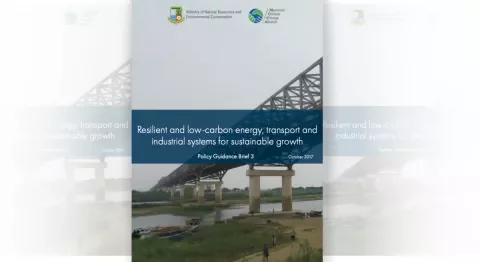
Policy Guidance Brief 3: Resilient and Low-Carbon Energy, Transport and Industrial Systems for Sustainable Growth, 2017 (Myanmar)
The Guidance Brief is a tool to effectively address climate change in Myanmar by aiding the understanding of key sectoral challenges, strategic objectives and specific actions. Limited access to electricity in the country translates to a greater risk to energy connectivity across the country in the face of climate change.

Citizens' Handbook on Environmental Justice
The Citizen’s Handbook on Environmental Justice is a citizen-friendly material designed to help ordinary people or laypersons bring environmental cases before the courts. It is a tool to encourage citizen participation in the enforcement of environmental laws, in recognition of the key role citizens play in the protection and promotion of the environment. It is an easy reference on the various environmental violations and the procedures entailed when a case is brought before the proper forum or the court.
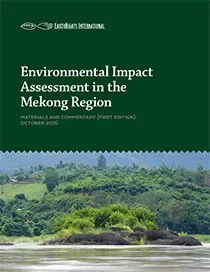
Environmental Impact Assessment in the Mekong Region
The Environmental Impact Assessment seeks to bring together in one volume an analysis of the environmental impact assessment systems of each of the six Mekong countries, including the common themes and approaches.
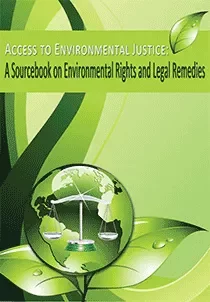
Access to Environmental Justice: A Source on Environmental Rights and Legal Remedies
Access to Environmental Justice: A Sourcebook on Environmental Rights and Legal Remedies is a recognition of the urgency of environmental justice as our common concern, the fundamental character of environmental rights and the necessity of environmental remedies. It outlines the pioneering efforts of the Supreme Court and the entire judiciary to translate into concrete programs the vision of our Constitution for a balanced and healthful ecology.
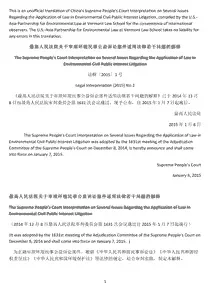
The Supreme People's Court Interpretation on Several Issues Regarding the Application of Law in Environmental Civil Public Interest Litigation
This is an unofficial translation of China’s Supreme People's Court interpretation on several issues regarding the application of law in environmental civil public interest litigation, compiled by the US- Asia Partnership for Environmental Law at Vermont Law School for the convenience of international observers. The US-Asia Partnership for Environmental Law at Vermont Law School takes no liability for any errors in this translation.

Shooting Stars and Dancing Fish: A Walk to the World We Want
The book tackles the crises of environment and climate in simple and understandable language and sees these challenges as opportunities for humankind to prove its wisdom.
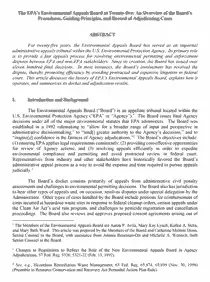
The EPA’s Environmental Appeals Board at Twenty-five: An Overview of the Board’s Procedures, Guiding Principles, and Record of Adjudicating Cases
This article discusses the history of EPA’s Environmental Appeals Board, explains how it operates, and summarizes its docket and adjudication results.
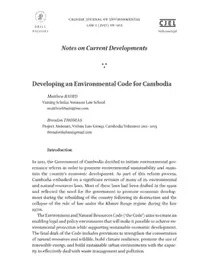
Chinese Journal of Environmental Law 1 (2017) 99–103 - Notes on Current Developments: Developing an Environmental Code for Cambodia
In 2012, the Government of Cambodia decided to initiate environmental governance reform in order to promote environmental sustainability and maintain the country’s economic development. As part of this reform process, Cambodia embarked on a significant revision of many of its environmental and natural resources laws.
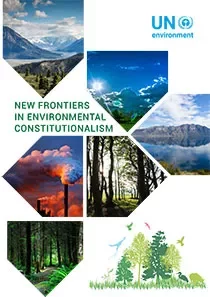
New Frontiers in Environmental Constitutionalism
The book examines new frontiers in the implementation of constitutional, international, and regional rights-based approaches to promote environmental protection.
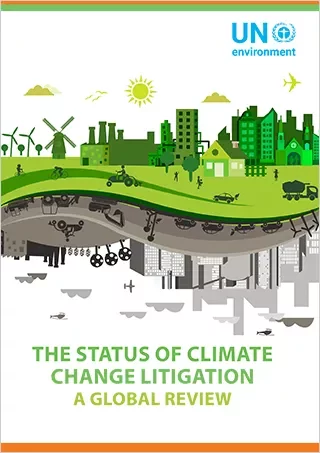
The Status of Climate Change Litigation: A Global Review
This report provides judges, advocates, researchers, and the international community with an of-the-moment survey of global climate change litigation, an overview of litigation trends, and descriptions of key issues that courts must resolve in the course of climate change cases.